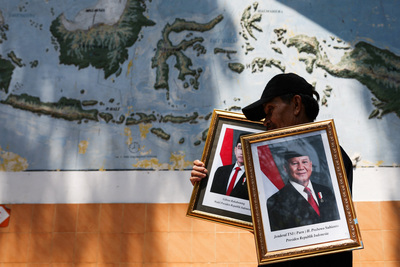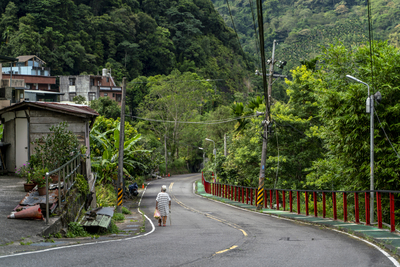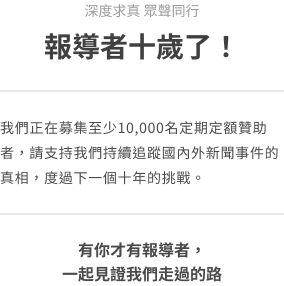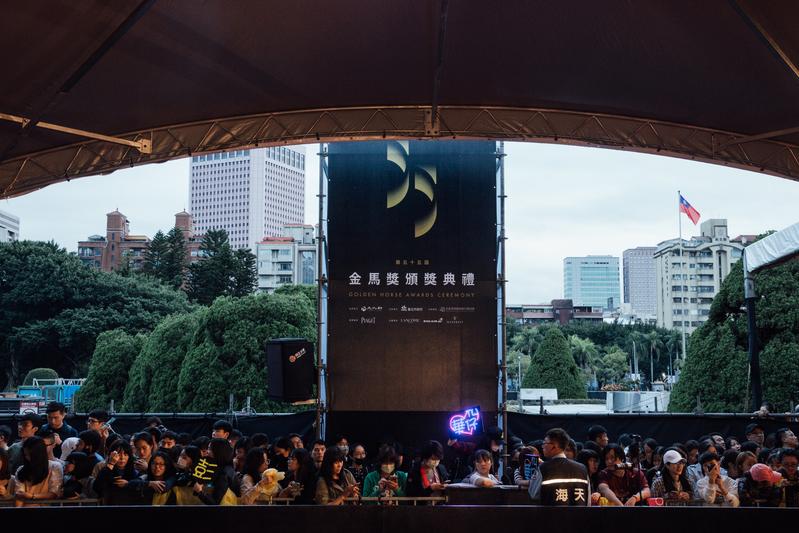
Our Youth in Taiwan (我們的青春,在台灣) won the the Best Documentary in the 55th Golden Horse Awards in 2018. In her award acceptance speech, Fu Yue proclaimed: “I really hope that our country can be regarded as an ‘independent entity.’ This is my biggest wish as a Taiwanese.” Fu’s speech sparked a heated debate on Taiwan independence both within and beyond the award ceremony. In 2019, the China Film Administration banned mainland Chinese films and related personnel from participating in the 56th Golden Horse Awards. How did filmmakers, curators, and critics in Taiwan, mainland China, and Hong Kong react to this ban? What are the implications behind a Golden Horse Awards without China?
On August 7, 2019, China Film News cited the China Film Administration’s (中國國家電影局) decision to halt mainland Chinese films and related personnel from participating in the 56th Golden Horse Awards. This decision triggered public outcry. What would be the long and short term effects of a Golden Horse Awards without China? What should the Golden Horse Awards do going forward?
The China Film Administration announced it would not participate in the 56th Golden Horse Awards. “This ban is specifically set up to trap mainland Chinese filmmakers. What it hurts are those in the mainland Chinese film industry, not the Golden Horse Awards itself,” said Lau Tsu-Wei, a well-known Taiwanese film critic. This situation recalls the United States and the Soviet Union boycotting each other’s Olympics in the Cold War era, and those who were truly harmed were the young athletes of both nations.
The absence of Chinese films from the Golden Horse Awards also brought a chilling effect to Hong Kong.
“Hong Kong films should be able to participate in the Golden Horse Awards. However, Hong Kong filmmakers as a whole are in a pitiful state. They fear not only their career but for their lives also,” said Ng Ka-Leung in an interview with The Reporter. Ng won the Hong Kong Film Award for Best Film for his independent movie Ten Years.
“Films should be the most accommodating and peaceful medium of expression. It allows people from different places to interact. Banning the Golden Horse Awards is a pity to both China and Taiwan,” said Ng Ka-Leung.
Regardless of how China has grown into the second-largest film market in the world, its bans on films and cultural productions have only increased. Hong Kong and Chinese filmmakers began to self-censor in their commercial film productions while Chinese independent filmmakers have also felt pressure from state authorities.
In 2012, the current Chinese President Xi Jinping (習近平) took office. Since 2013, important Chinese independent film festivals in Beijing, Nanjing, and Chongqing have been cancelled. “The interference and political operations under the table in the past are now on the table,” noted Wood Lin, the curator of the Taiwan International Documentary Festival (TIDF) who had attended the Chinese Independent Film Festival for many years.
On March 1, 2017, China implemented the “Film Industry Promotion Law” (《電影產業促進法》), strengthening its ideological regulations of and stipulating penalties for film productions.
Zhang Zanbo, the director of the Chinese documentary film The Road, commented that March 1, the day the bill was passed, was “the darkest moment of Chinese independent films.”
“Creators like me who gave up his ties with the commercial film system all feel that the future of filmmaking in China is becoming narrower and narrower,” Zhang Zanbo told The Reporter. He read each article of the “Film Industry Promotion Law” in detail and really sensed the Chinese government’s malicious intent and design of the law. Everything from production, distribution, screening, to festival participation must be reviewed by the authorities, otherwise, it violates the law.
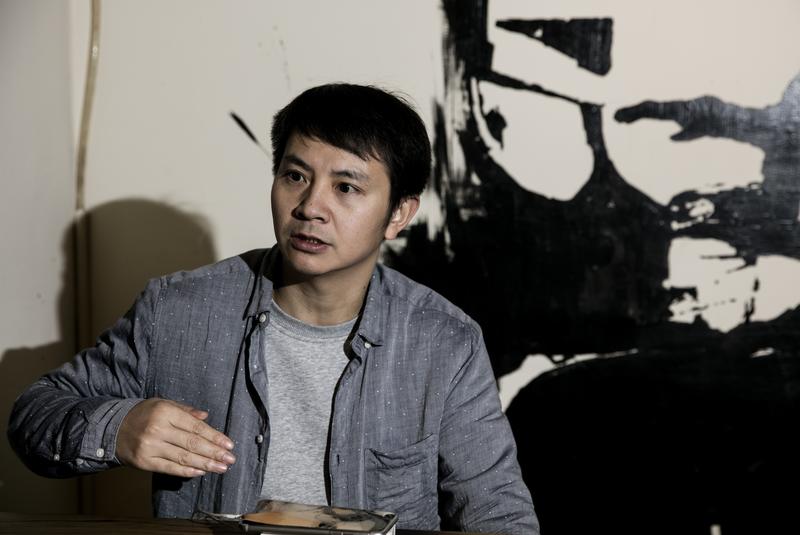
There are two fangs in the “Film Industry Promotion Law”. The first is a filming permit, the second a film release permit. The two permits hold the two ends of the film production industry chain. To obtain the filming permit, the script must first be reviewed. Even if the filming permit is issued, a film release permit must be obtained for the public release of the film. It is considered an offense to participate in foreign film festivals without a film release permit.
“They can check your bank accounts and sources of your funding. Even if you’re not scared, no one would dare to collaborate with you. Others bring changes to their nation with films, our country uses state power to change the films,” Zhang Zhanbo criticized.
According to Article 49 of the “Film Industry Promotion Law”, there are three conditions under which permits would be revoked and films and its “unlawful gains” confiscated and fined: the “distribution and screening of films that have not obtained a film release permit”; “altering film contents upon obtaining the film release permit”; or “participating in film festivals without a film release permit”.
The preceding “Regulation of the Administration of Movies” (《電影管理條例》) followed similar regulations. Chinese film productions have been unable to escape the curse of politics.
Thirteen years ago, the sixth generation Chinese director Lou Ye(婁燁) participated in the Cannes Film Festival without the film release permit of his work, Summer Palace. As a result, he was barred from film production for five years. Summer Palace describes two teenagers’ romance spanning over ten years, with events such as the June Fourth Incident in the background. To this day, Chinese audiences still have never seen a glimpse of the movie. In February 2019, the fifth generation director Zhang Yimou(張藝謀) used the Cultural Revolution as a background in his movie One Second. This work depicts labor camp prisoners sneaking out of the farm to watch films and formed a bond with an orphan. Due to what the Chinese authorities referred to as “technical censorship”, the film was forcibly withdrawn from the Berlin Film Festival.
The absurdity of Chinese state power makes Zhang Zanbo angry, but attacks from other people upset him. On August 7, when he criticized the Chinese boycott of the Golden Horse Awards on Facebook, there was an internet uproar from Chinese netizens demanding him to revoke his Chinese citizenship, accusing him of supporting Taiwan independence, with even some netizens commenting: “if you only want to grab attention on the issue of Taiwan independence, then I can only curse your whole family”.
In an exclusive interview with The Reporter, Zhang said, “I am actually fighting for a right that everyone deserves, why do you feel that this right can be handed out so lightly?” He feels that the trend of “banning” and “reporting” on the internet is leading the whole Chinese society back to the Cultural Revolution era.
On the other hand, the Golden Horse Awards is still recognized as the most influential film exchange platform within the Sinophone due to its inclusiveness and ability to accommodate creative talents from Taiwan, mainland China, and Hong Kong.
Yee Chih-yen, a director who served as a judge for the Golden Horse Awards, said in an interview with us that the most precious thing of the award is not the momentary glamour of who wins the award. The Golden Horse Awards is reputable because judges from Hong Kong and mainland China are included within the judging panel, and during the judging process, they can sincerely share criticism and exchange opinions. Different views surge throughout the award and trickle-down year after year.
“To think that we only care for that thirty seconds of award acceptance speech is just looking down on us filmmakers,” Yee Chih-yen said. Senior mainland Chinese film directors familiar with Yee such as Lou Ye and Wang Xiaoshuai don’t really care whether they can win. However, for directors who take film arts as their lifelong passion, they always treasure the opportunity to sincere exchanges with other filmmakers in the Golden Horse Awards.
“I feel bad for my Chinese friends, not because they are unable to join the festival, but because they are losing the opportunity to share thoughts and ideas. In the festival, these creators can enjoy face-to-face discussion and even the opportunity to criticize each other’s works. These exchanges, for directors, are more rewarding than winning awards.”
The Chinese Golden Rooster Awards was intentionally chosen to be held on the same day as the Golden Horse Awards in 2019. Political tension across the Strait could be acutely felt through the 56th Golden Horse Awards. As soon as the ban was issued, it was certain that there would be no Chinese filmmakers competing for the award. Will the Golden Horse Awards suffer a major blow?
“This ban may temporarily affect the advertising, ratings, and influence of this year’s Golden Horse Awards, but at the same time it reveals the great disparity in the creative environment and ecosystem across the Strait, and increasingly shows the independence and impartiality of the Golden Horse Awards,” Lau Tsu-Wei emphasized. In the interview, Lau also stated that the Golden Horse Awards should not panic. Just look at the records of the Golden Rooster Awards and see how many times the works that praised Zhou Enlai and Mao Zedong won, one will know that even Chinese filmmakers themselves don’t trust the Golden Rooster Awards.
Since its inception in 1962, the Golden Horse Awards, also known as the Chinese Oscars, has already had 55 sessions and accepted mainland Chinese film submissions since 1996. That year, Jian Wen’s directorial debut In the Heart of the Sun won six awards including Best Feature Film, Best Director, Best Leading Actor, and Best Adapted Screenplay. As China grows into a film powerhouse, more and more mainland Chinese films are shortlisted for the Golden Horse Awards. In 2018, the award is even dubbed as the year of China. Among the five films shortlisted for Best Feature Film, only Dear Ex came from Taiwan, with the other four all from China. For the five nominations for Best Director, all were from China.
“(The award) has so many young directors’ works representing the hope and future of Chinese films (zhongguo dianying; 中國電影),” said Zhang Yimou in his award acceptance speech for Best Director with his movie Shadow.
What Zhang referred to as “Chinese films” was met with immediate criticism during the Golden Horse Awards. Winner of the Best Documentary for her feature-length documentary film Our Youth in Taiwan, Taiwanese director Fu Yue proclaimed in her award acceptance speech: “I really hope that our country can be regarded as an ‘independent entity’ (獨立的個體). This is my biggest wish as a Taiwanese.” Fu’s proclamation drew disapproval from the mainland Chinese actor Tu Men. When Tu presented the Best Leading Actress award on stage, he referred to Taiwan as “China, Taiwan” and asserted that “both sides of the [Taiwan] Strait are one family.”
Beyond the parameters of the Golden Horse Awards, Fu’s award acceptance speech sparked outrage among Chinese netizens, causing her Facebook page to be flooded by angry comments. In her defense of Fu and the Golden Horse Awards, President Tsai Ing-wen (蔡英文) said on Facebook, “we have never accepted the term ‘Chinese Taiwan’ … Taiwan is just Taiwan.” This debate on Taiwan independence was the major reason behind China’s boycott of the Golden Horse Awards.
Despite the different meanings of Zhang Yimou’s and Fu Yue’s “China”, to many mainland Chinese filmmakers, the significance of the Golden Horse Awards has never been reduced.
Both mass-production commercial film directors and independent documentary directors learned to continue their work with invisible handcuffs and anklets under the recent Chinese policies. While some directors are indifferent, some are furious with the political control over art.
“The Golden Horse Awards is still the most credible, diverse, and inclusive in the Sinophone,” said Zhan Zanbo. Many films banned or blocked by China have the opportunity to be seen through the Golden Horse Awards.
Golden Horse Awards remains the aspiration of many young Chinese directors. The air of freedom in Taiwan still inspires their creation. Since the inception of the Best New Director Award in 2010, out of 9 awards, 4 were given to new Chinese directors, who are Wen Muye, Bi Gan, Chen Jianbin and Wuershan respectively.
“Had Hu Bo never come to Taiwan, he wouldn’t have been able to direct An Elephant Sitting Still,” said the renowned Taiwan-based film critic Lan Tsu-Wei. An Elephant Sitting Still won the Best Feature Film award in 2018. The moment where Ang Lee warmly hugged Hu Bo’s mother who came to accept the award for her deceased son remained in the hearts of many people.
Directors in mainland China, Taiwan and Hong Kong all hope that this ban is only temporary.
“I think that some conflict or friction is inevitable, but the Chinese must learn not to assume all opposition as enemies, not to fall into the war mentality encouraged by the government. Politics should not extend its hand into the film festivals across the Strait,” said Zhan Zanbo.
“Different values, imaginations, and films can all appear on the stage of the Golden Horse Awards, shaping and confronting each other. I really hope that this exchange platform will not be overwhelmed by political pressure for the moment. Hong Kong is very envious of Taiwan,” said Ng Ka-leung, the filmmaker of Ten Years.
If the Chinese boycott of the Golden Horse Awards is sustained in the long run, a Golden Horse Awards without China would need to carefully consider its different positioning in relation to the Taipei Film Festival.
The restructuring of the Taipei Film Festival in 2019 has been criticized as one that turns the festival into a second-class Golden Horse Awards. In the past, the Taipei Film Festival did not limit film length and genre in its evaluation. As a result, when compared to the Golden Horse Awards, the Taipei Film Festival carries more grassroot energy of Taiwan film and television productions. But if the Golden Horse Awards and Taipei Film Festival overlap in terms of their selection of future film finalists, competition method, and submission mechanism, both awards must reconsider their own position and influence in relation to each other.
And the Golden Horse Awards must remain open. Wood Lin, the curator of TIDF, believes that the credibility and diversity of the Golden Horse Awards will not be compromised. “The number of Chinese film exhibitors are the largest, but not necessarily the greatest. The spotlight of the Golden Horse Awards can be directed to Singaporean or Malaysian Chinese films and uncover more different creative works,” he said.
Despite the Chinese political boycott against the award, the Taiwan film industry must move on and continue to improve and maintain their quality in order to bloom freely.
To read the Chinese version of this article, please click:〈當中國封殺金馬獎,張贊波:「人家是電影改變國家,咱們是國家改變電影」〉
深度求真 眾聲同行
獨立的精神,是自由思想的條件。獨立的媒體,才能守護公共領域,讓自由的討論和真相浮現。
在艱困的媒體環境,《報導者》堅持以非營利組織的模式投入公共領域的調查與深度報導。我們透過讀者的贊助支持來營運,不仰賴商業廣告置入,在獨立自主的前提下,穿梭在各項重要公共議題中。
今年是《報導者》成立十週年,請支持我們持續追蹤國內外新聞事件的真相,度過下一個十年的挑戰。


